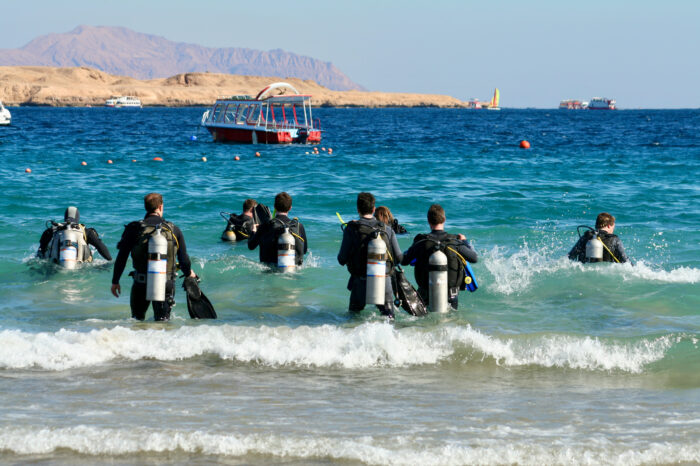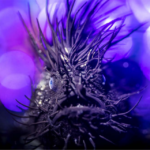Mastering the Bubble Bokeh
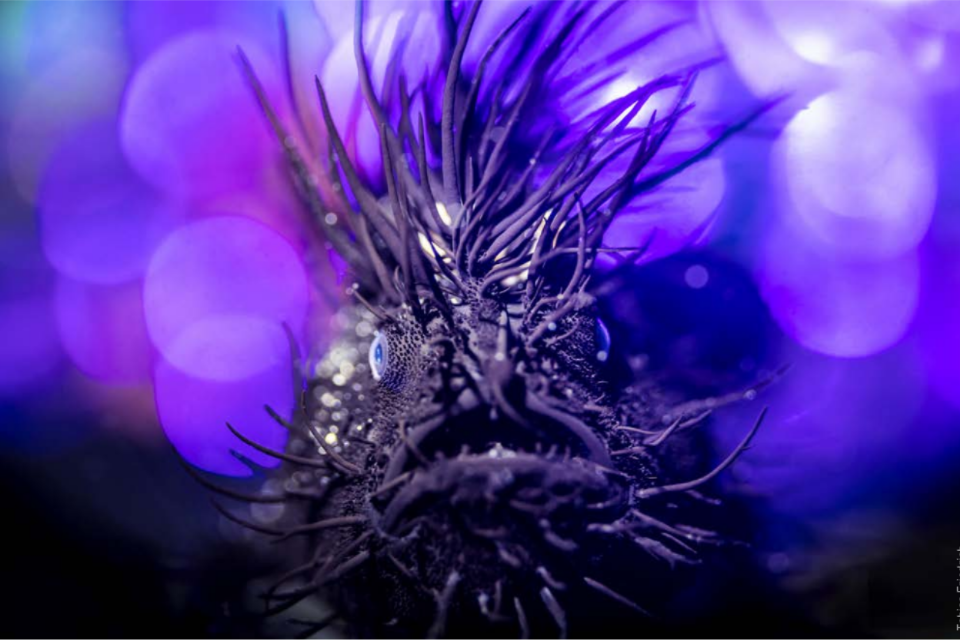
Looking to explore a new photography style? Tobias Friedrich tells of how he stumbled upon the bubble bokeh effect, and shares some tips on how to achieve this dreamy look.
Text by Tobias Friedrich (ScubaDiver Issue 3/2018 No. 113)
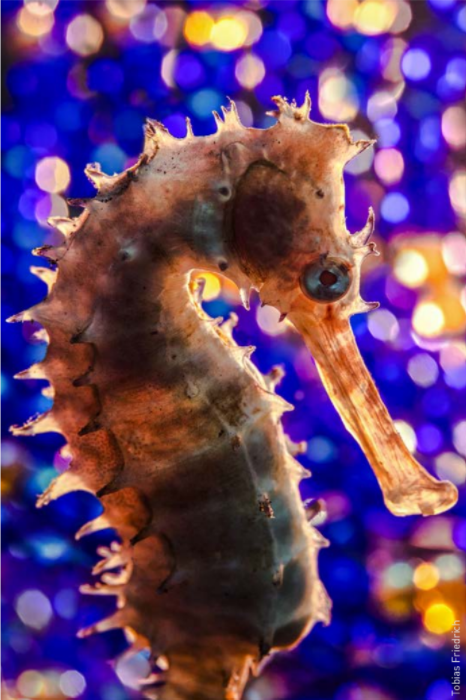
Backlit seahorse with bubble bokeh background
Underwater photographers are constantly looking for new techniques and styles to impress. With the technology available in today’s digital age, anyone can easily create stunning images by experimenting with camera settings and photo-editing software. While this is wonderful in creating opportunities for aspiring photographers, a saturation in photo creativity has been reached, and finding fresh ideas has become difficult.
To win underwater photography competitions, copying the styles that others have created won’t win you first place. A replicated style will not impress judges and viewers who have already seen similar images – the effect would simply not be the same. So how can we get new ideas or inspiration? This is actually the hardest but most creative part of underwater photography.
The idea for the bubble bokeh concept came to mind when I was experimenting with projector lenses.
The idea was to create different backgrounds for standard subjects with a so-called “bokeh”, which simply put is a type of blurred background.
These lenses are great because they give a completely different look from the standard lenses that produce a smooth and simple background. Projector lenses come in different varieties and produce different bokeh effects. The Meyer Görlitz Trioplan 100mm not only creates “bubbles”, but also forms a small ring on the outside of each bubble, which is extremely beautiful.
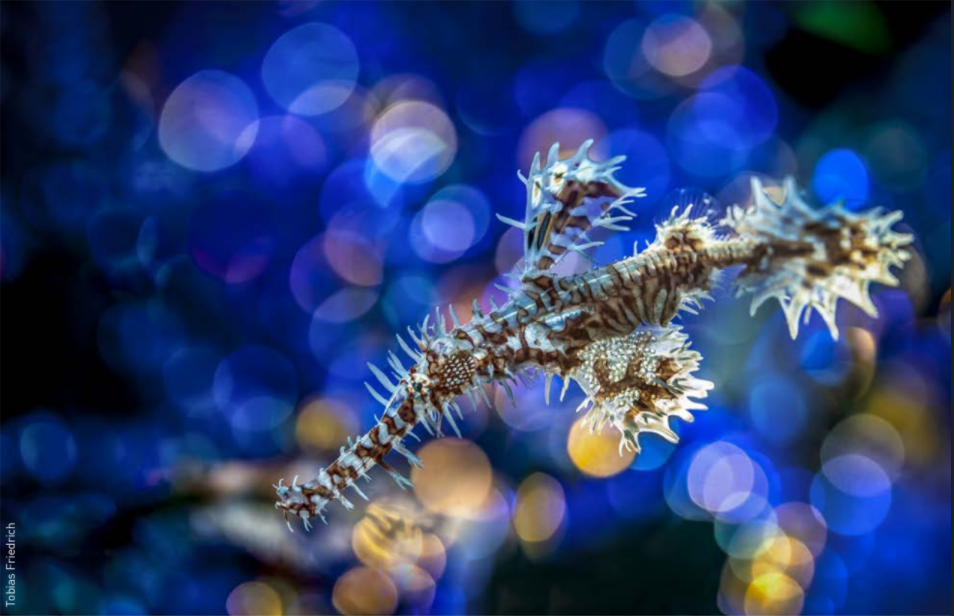
Ornate ghost pipefish (Solenostomus paradoxus) with bubble bokeh background
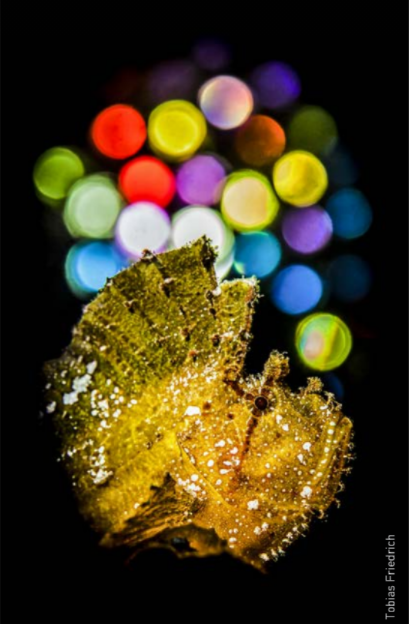
Yellow leaf scorpionfish (Taenianotus triacanthus), Bali, Indonesia
The best and most intense bubbles can be produced when the lens is set to its biggest possible opening, which is usually f/2.8 for most lenses. However, this makes it very hard to focus on the subject, such as the eyes of a fish, because the depth of focus is only a few millimetres thick.
Another issue is finding the light to create the bubble bokeh underwater. Above water, these lenses perform very well with just the sunlight’s reflection in the distance. Underwater, achieving the same effect is much more difficult, though it is possible at dawn and dusk when the sunlight hits the surface. Unfortunately, the time frame to get these images is very short and finding a suitable subject in that limited time is difficult.
The big question was how to create an artificial background that looks like the perfect bubbles formed above water. During a workshop in Lembeh, I met Sascha Janson, an underwater photography instructor who showed me a special, colourful background he had been experimenting with.

A pair of clownfish (Amphiprion ocellaris) with bubble bokeh background
This was the inspiration I needed – I immediately had the idea to put some additional lights behind the background to illuminate it from behind, which hopefully would create some bubbles in the bokeh of the shots. I took the background and the lights with me on my next dives and performed some test shots, spending almost an entire dive photographing a black hairy frogfish!
The idea was born, the concept was proven, and a plan was made. I was to create a series of bubble bokeh images with different subjects and backgrounds. Straight after my visit to Lembeh Strait, I visited Doris Vierkötter in Bali. Doris, who is an award-winning photographer herself, was immediately hooked by the idea of this bubble background.
Together, we spent nights working on improving the backgrounds till we achieved the mood and colour we wanted. The first results with the improved backgrounds were very satisfactory and for the following months, I went around the world continuing to experiment with this effect.
I am proud to say that I am very pleased with the end result, but as with all new creations, the effect wears off on viewers after some time, so I’m not planning on continuing the series. Instead, I will keep looking for more ideas and playing around with natural light for the perfect bubble bokeh shot.
Tobias Friedrich is a full-time professional underwater photographer. His works have been published in many prestigious diving magazines and newspapers around the world. Most recently, he was awarded the title “Underwater Photographer 2018” at the UPY London contest. He leads expeditions and photography workshops around the world.
–
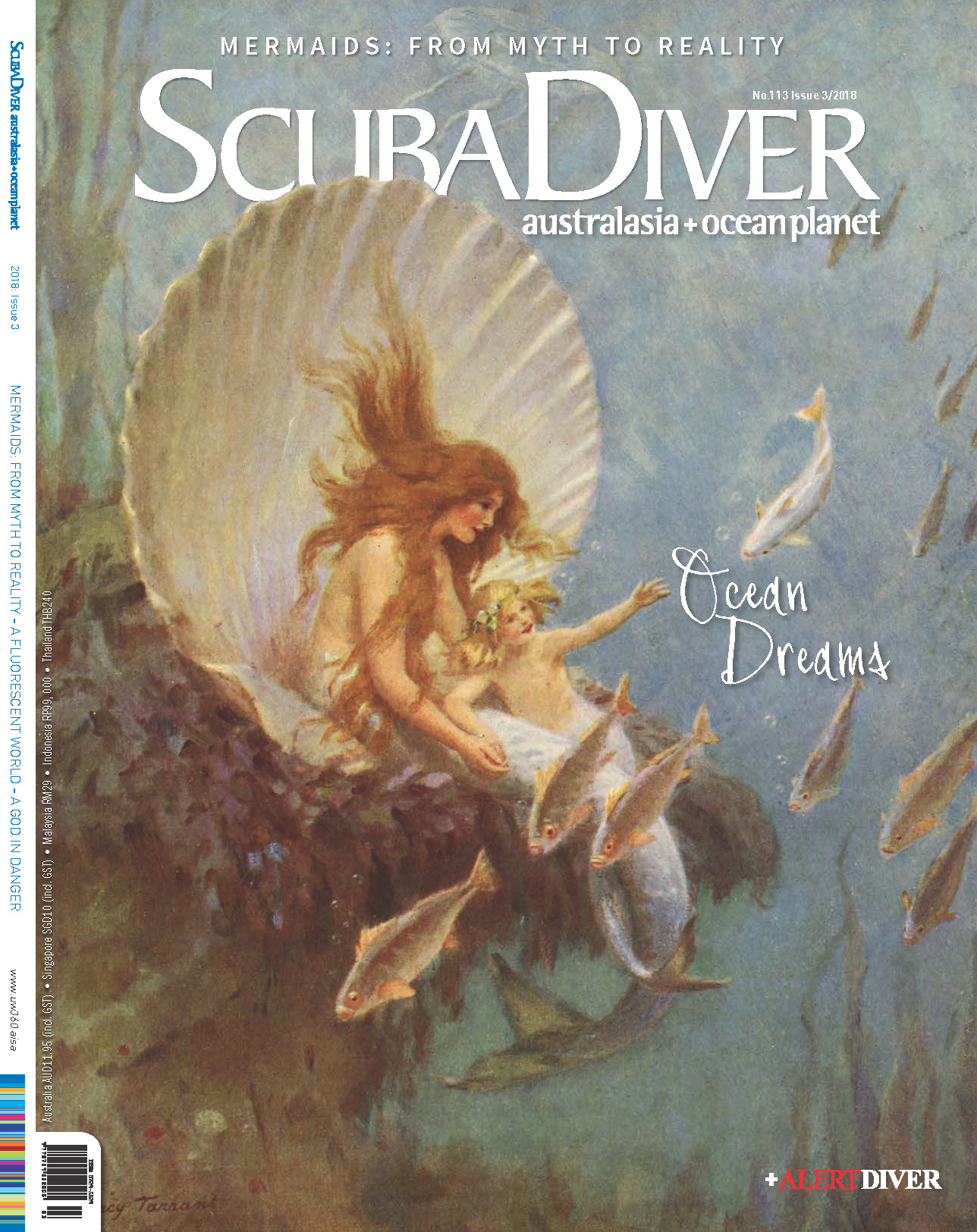
Hungry for more tips and tricks? Check out ScubaDiver Issue 3/2018 No. 113 here or download a digital copy here! The latest issue of the ScubaDiver Magazine is coming to shelves soon, reserve your copy today by emailing marketing@asiangeo.com!

